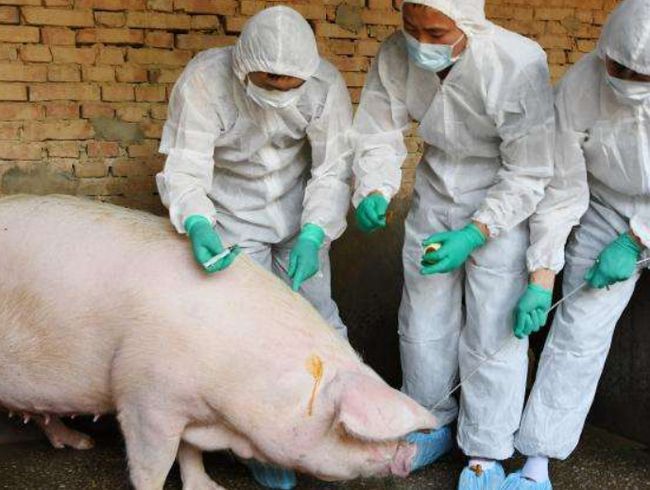On August 31, the South Korean government confirmed that an African swine fever outbreak occurred in Gimpo City near Seoul, the capital of South Korea. As the Mid-Autumn Festival was approaching, the Ministry of Agriculture, Food and Rural Affairs of South Korea ordered relevant departments to take emergency epidemic prevention measures on the same day to prevent the spread of the epidemic.
According to South Korean media reports, the pig farm where the incident occurred raised about 3,900 pigs. In order to prevent the spread of the epidemic, all the infected pigs will be culled.
In addition, the South Korean government has also adopted an emergency epidemic prevention policy to disinfect about 400 pig farms in and around Gimpo City. Considering that there are more people and vehicles moving during the Mid-Autumn Festival, the risk of virus transmission increases. The South Korean government has also decided to conduct a detailed inspection of the pigs shipped out of Gyeonggi Province, and at the same time issued a temporary transportation ban on pig farms and related facilities in Incheon, Paju and Yeoncheon.
The Ministry of Agriculture, Food and Rural Affairs of South Korea said that since the number of pigs raised in the infected pig farms is not large, it is expected that this culling will not affect the supply of pork in the national market.
African swine fever is an acute, hemorrhagic, and highly contagious disease caused by the African swine fever virus infecting pigs, characterized by high fever, severe bleeding in internal organs, and high mortality. The virus can survive for a long time under non-high temperature conditions, and there is currently no animal vaccine or specific medicine that can prevent and treat it.

According to South Korean media reports, the pig farm where the incident occurred raised about 3,900 pigs. In order to prevent the spread of the epidemic, all the infected pigs will be culled.
In addition, the South Korean government has also adopted an emergency epidemic prevention policy to disinfect about 400 pig farms in and around Gimpo City. Considering that there are more people and vehicles moving during the Mid-Autumn Festival, the risk of virus transmission increases. The South Korean government has also decided to conduct a detailed inspection of the pigs shipped out of Gyeonggi Province, and at the same time issued a temporary transportation ban on pig farms and related facilities in Incheon, Paju and Yeoncheon.
The Ministry of Agriculture, Food and Rural Affairs of South Korea said that since the number of pigs raised in the infected pig farms is not large, it is expected that this culling will not affect the supply of pork in the national market.
African swine fever is an acute, hemorrhagic, and highly contagious disease caused by the African swine fever virus infecting pigs, characterized by high fever, severe bleeding in internal organs, and high mortality. The virus can survive for a long time under non-high temperature conditions, and there is currently no animal vaccine or specific medicine that can prevent and treat it.


